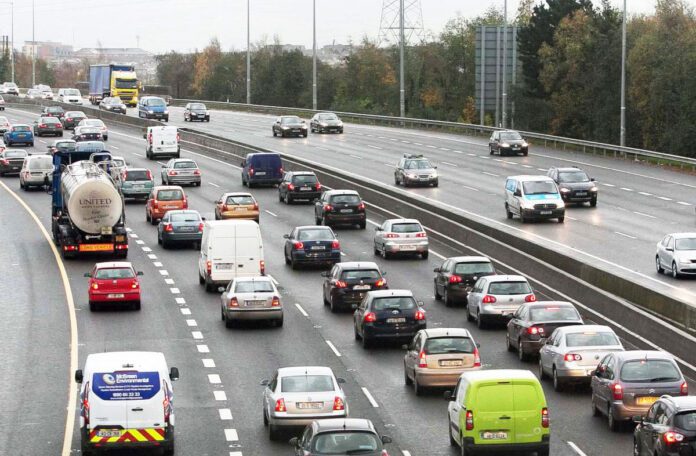
AN AMENDMENT which could see the number of cars on the roads of Limerick halved over the next six years was passed in Limerick council chambers this week.
Councillor were asked in Dooradoyle chambers this Monday to adopt the Climate Action Plan (CAP) and the only councillor to propose amendments to the plan was Cllr Seán Hartigan.
Among the three amendments from the Green Party councillor Hartigan was to include an aim to reduce car usage in Limerick by 50 per cent by 2030.
“The first line in Limerick’s CAP describes climate change as the ‘most critical long-term global challenge of our time’. In spite of this I felt that the CAP lacked real ambition and was not been taken seriously by councillors,” the City East representative told the Limerick Post after the meeting.
“Most councillors had left the chamber by the time this appeared on the agenda and there was little contribution from those online. I believed that councillors had no real interest in the plan and would seriously question if they had actually read it, so I said I would try for something radical in my amendments,” he explained.
Earlier in the same Council meeting after a presentation by the Irish Farmers Association (IFA), a number of councillors had spoken about the reality of climate change.
“I am still not sure if this was from the heart or they were looking for a green vote,” Cllr Hartigan opined afterwards.
“Transport is the second largest contributor to our carbon emissions after agriculture and I think it’s an area where we can make significant changes while also improving air quality, public health, road safety, liveability and space reallocation.
“There was not any opposition to my motion and it was seconded by Labour councillor Conor Sheehan. If there was opposition I was prepared to alter the motion to something like reduce the number of diesel and petrol cars by 50 per cent by 2030.”
Hartigan believes it is now possible to significantly reduce car numbers on the road, especially in the city centre if we continue to improve bus services and cycling facilities.
“I’m not naive enough to believe that we can completely do without cars, but it is getting far easier to manage without a car. Personally, my family got rid of the second car four years ago and I have travelled to work, a 30 km round trip daily, on an electric bike.
“I feel it has had enormous benefit to my physical, mental and financial health, has made little difference to my travel time and allows me to meet people and chat on the journey. It’s not for everyone and I wouldn’t be trying to force people to part with their cars but it has worked for me and I’m sure it could work for many others as well,” he concluded.










